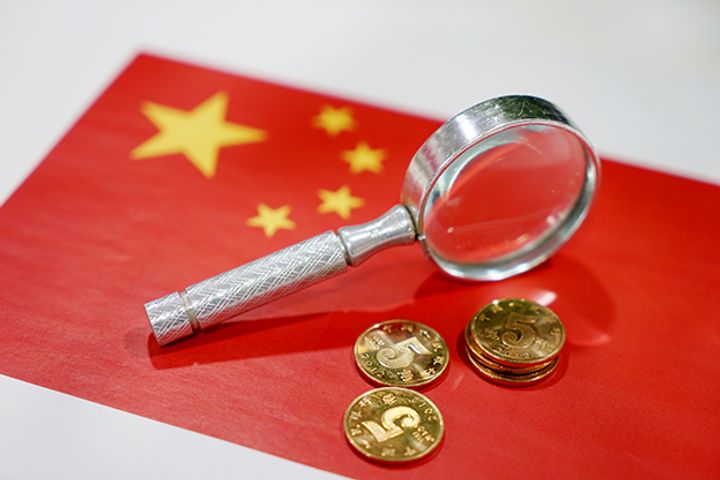 Firms Naturally Suffer as China Shifts to Medium-Speed Growth, PBOC Advisor Says
Firms Naturally Suffer as China Shifts to Medium-Speed Growth, PBOC Advisor Says(Yicai Global) Jan. 2 -- It is entirely normal for some businesses to go through a bad time as they compete to survive amid a shift in China's economy to medium-speed growth, according to an advisor to the country's central bank.
China's economy has generally refocused to a medium-speed expansion over the past seven or eight years from high-speed growth that averaged an annual 10 percent, Liu Shijin, a member of the Monetary Policy Committee at the People's Bank of China, said in an interview with Yicai Global.
The nation's economic growth will slow gradually and is expected to come in above 6.2 percent this year and next, falling between 5 and 6 percent or about 5 percent in 2020, Liu said. This is the overall trend, he added.
The yuan exchange rate will fluctuate amid trade frictions and expectations and has the potential for a medium-term appreciation against the US dollar if China can achieve high-quality development based on medium-speed growth, Liu said.
He added that improvements in factory productivity can be achieved two ways. Firstly, by breaking the administrative monopoly to enhance competition and reduce operating costs, removing the inefficiency of economic development. Secondly, by encouraging and promoting innovation. China has already reached the peak of traditional industrialization, and must now climb a higher mountain -- that of innovation, Liu said.
Innovation Hubs
Not all companies and regions can become innovation centers. The key to building such a center is to gather the elements of innovation, Liu said. It is not enough that Shenzhen, Hangzhou and the Zhongguancun area of Beijing have become innovation hubs in recent years. The government cannot decide where the next one should be. That can only be determined by competition.
The government should provide private enterprises with an environment for fair competition to support their development, instead of issuing preferential policies via administrative methods, he said. The key is to offer them a normal and legal environment for development.
Private firms, state-owned enterprises, foreign-funded companies and joint ventures are all businesses regardless of their origin and investors, and they should enjoy equal opportunities for development, Liu said, adding that the financing difficulties of private firms is an international problem that cannot be solved by administrative methods, it requires big and deep reform.
The business focus, competitive advantage, and core competencies of large banks are not geared toward small and medium-sized firms, though some lenders have set up departments that provide loans to SMEs. Liu said it is necessary to support financial institutions, such as community banks, that serve local SMEs.
Quality Upgrade
He suggested that the government should encourage state-owned and private firms to step up their quality rather than seek expansion. A firm's optimal size is different from industry to industry. For example, some German businesses are not large, but are time-honored brands with a big market share.
Corporate tax cuts are necessary, Liu said, and the scope for reduction is very large. The government's expenditure, including on people's livelihood, is quite extensive. Tax cuts may also involve adjustments of government agencies that require corresponding reforms.
China's market economy has developed quite rapidly in the past decades, but it is still a lower-level, lower-standard and imperfect market economy. It must be transformed into a high-standard market economy to match the high-quality development, Liu said.
Some focus issues and difficult problems need to be resolved first to realize the transformation, such as fair competition, industrial policies, subsidies and intellectual property. State capital and SOEs also need reform, Liu said, adding that the goals, priorities and direction of reforms have already been proposed.
China will leap forward in establishing a high-standard market economy if reforms in these sectors can make breakthroughs, he said.
Reforms and opening-up are carried out through trial and error. The government should mobilize people's enthusiasm and creativity to unveil some good practices and mechanisms, and then summarize and promote them nationwide, Liu concluded.